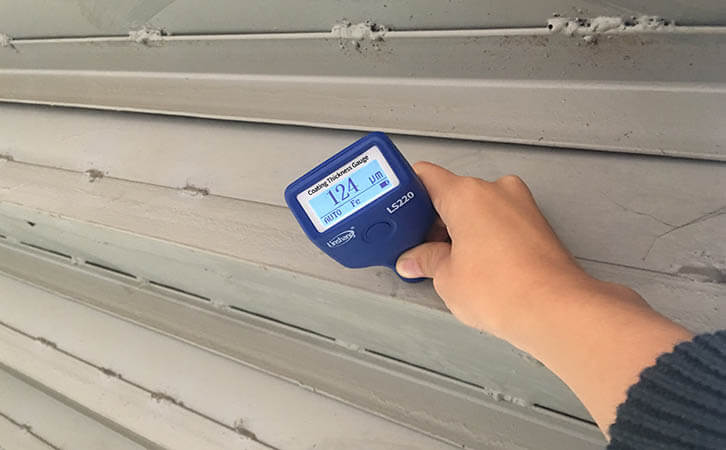What Applications Are Coating Thickness Gauges Used For?
1. Coating thickness gauge measurement principle
Principle of magnetic thickness measurement: When the probe is in contact with the coating, the probe and the magnetic metal substrate form a closed magnetic circuit. Due to the presence of the non-magnetic coating, the magnetic resistance of the magnetic circuit changes. The change of the coating can be calculated by measuring its thickness.
Eddy current thickness measurement principle: Use high-frequency alternating current to generate an electromagnetic field in the coil. When the probe is in contact with the cover layer, an eddy current is generated on the metal substrate. A feedback effect is generated on the coil in the probe. By measuring the magnitude of the feedback, the thickness of the overlay can be derived.
2. Applicable industries of coating thickness gauge
(1) Electroplating and spray coating: Coating thickness gauges are well applied in this industry, which accounts for a considerable proportion of the annual sales of coating thickness gauges. It is also a major user group and requires a lot of energy to continue digging.
(2) Pipeline anticorrosion: There are many users in petrochemical industry. Generally, the anticorrosive layer is relatively thick. You can use a coating thickness gauge to measure the specific thickness of the pipe anticorrosive coating.
(3) Aluminum profile: Since the beginning of this year, due to the implementation of compulsory standards by the state and the renewal of licenses by profile companies, a new good momentum has emerged in the industry. The oxide film on the profile is mainly measured. The “saving” of the profile is 150 RMB, which is very considerable. Therefore, the state compulsorily requires the relevant testing equipment including coating thickness gauge.
(4) Steel structure: For coating thickness gauges, such enterprises can also be classified as an industry separately. Coating thickness gauges do have a lot of applications in this industry.
3. Selection of coating thickness gauge
When buying a coating thickness gauge, you need to know the following points:
(1) Confirm the substrate. If the substrate is magnetically permeable metal (steel, iron) and the coating is non-magnetically permeable, we select an iron-based coating thickness gauge. The substrate is non-magnetic metal (copper, aluminum), the coating is non-metallic material, non-ferrous coating thickness gauge is selected. If both of the above situations exist, choose dual-use coating thickness gauge, the instrument automatically recognizes the substrate.
(2) Pay attention to the measurement range when purchasing the instrument. The test range is different for different instruments.
(3) The measurement accuracy of the instrument requires the user to determine whether the accuracy of the instrument meets the requirements of his own production process.
The coating thickness gauge developed by Linshang Technology is an iron-aluminum dual-purpose coating thickness gauge, which does not need to be switched. The instrument automatically recognizes the substrate, which makes operation easier. The measuring range of different instruments is different, which meets a variety of measurement needs, up to 5mm.
At the same time, the accuracy of the three coating thickness gauges independently developed by Linshang Technology is consistent with the accuracy of the international Germany brand Q-nix. It is the highest precision instrument in Chinese coating thickness gauges. LS221 and LS223 two coating thickness gauges are externally connected, suitable for narrow test environments. The probe can be put into the test point for testing and the host can read easily outside.
In summary, the coating thickness gauge produced by Linshang Technology should be the most cost-effective coating thickness gauge on the market. It is the best choice for you to purchase a coating thickness gauge.
- High precision coating thickness gauge for used car
- Automotive paint protection films coating thickness gauge
- Plating Thickness Measuring Instrument for Detecting Anti-corrosion Coating
- Linshang LS220, LS191, LS160A– Necessary for Car Cover Inspection
- Coating Thickness Gauge for Second Hand Vehicle
- Zero Adjustment Step of Coating Thickness Gauge
